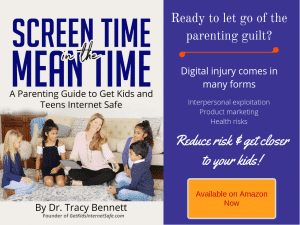
Do you suffer from digital amnesia? How many phone numbers can you recite offhand? Can you name three movies that are out? Does anybody have paper maps in their cars anymore? Most of us, particularly the digital natives, Google to search out random facts and figures rather than relying on memory. Researchers call this the Google effect, meaning that fewer of us bother to memorize things if we believe they are online.

Google was introduced to the Internet in 1998. It is a search engine that calculates and ranks the web pages that receive the most attention. Google not only serves up delicious content, but it also determines what we see first on our search list. Google works to filter out useless, scam-like, or explicit information and images from our search list.
Websites that rank the highest load quickly, do not use flashy animation, and have a coherent list of relevant search terms. Google weeds through the bad web pages to provide us with the best, which makes the scary world of the Internet a lot safer and easier to navigate. Google provides users with convenience, comfort, and trust.
What is the Google effect?
As Albert Einstein said, “Never memorize what you can look up in books.” Did I remember this line? No, I opened my Google Chrome web browser, proceeded to Google.com, and searched “famous quotes about memory.” We are moving to a future of memory decline and an over-reliance on technology that’s always at our fingertips.
Dr. Maria Wimber, Professor at the University of Birmingham’s School of Psychology, said the Google effect “makes us good at remembering where to find a given bit of information but not necessarily what the information was. It is likely to be true that we don’t attempt to store information in our memory to the same degree that we used to because we know the Internet knows everything.”
Betsy Sparrow from Columbia University explained, “Our brains rely on the Internet for memory in much the same way they rely on the memory of a friend, family member, or co-worker. We remember less through knowing information itself than by knowing where the information can be found.” We are more likely to commit keywords to memory than the facts they lead us to.

How powerful is the Google effect?
It’s been estimated that 90% of us have undergone digital amnesia. Over 70% of parents have not memorized their children’s phone numbers.[3] We are even less likely to remember an experience if we snapped a photo of it.
In her study, Dr. Maria Wimber assigned one group to go around the museum taking pictures, while the other group was told not to take pictures and just to enjoy the experience. Those who took pictures were found to remember significantly fewer details than those who did not use their smartphone.[3] Dr. Wimber elaborated, “One could speculate that this extends to personal memories, as constantly looking at the world through the lens of our smartphone camera may result in us trusting our smartphones to store our memories for us. This way, we pay less attention to life itself and become worse at remembering events from our own lives.”
As a millennial accustomed to heavy smartphone use, I would go as far as to say we rely on the “likes” from our social media posts to determine the worth of an event. If we get lots of likes, we must have had a great time; fewer likes and it was a bust.
Is the Google effect bettering us for the future?
Anthropologist Genevieve Bell thinks that the Google effect is not as detrimental as others think. She reports that technology “helps us live smarter.” Creating good search words is how knowledge is conforming to the technological future. There is such a thing as a good or bad question. If you type in a random mess of words into Google’s search bar, it’s likely you won’t find an answer that fits your needs. But being able to write a short, competent question that produces a concrete answer is a form of intelligence.
Bell gave an example of new parents worried that their child is not sleeping well. Her theory is that a smart parent would be able to comprise all the symptoms into a great Google search, while others might rely on others’ feedback. Google can find legitimate websites to back up the diagnosis of the child, while feedback from friends is just a matter of opinion.

What can you do to optimize Google’s benefits and minimize the risks?
-
Decide if you’re pro-integrated technology or if the commitment to technology has a negative impact on our future.
-
Emphasize to your kids that worth is more than skin deep. Provide opportunities for intellectual, spiritual, and character growth. Value substance.
-
Be a good role model. Watch your GTS ratio.
-
Educate your children about the risks and benefits of trusting the Internet.
-
Monitor and limit how often your teens use the Internet when studying with screen time management apps. Encourage them to build the scaffolding for memory with less reliance on Google.
-
Teach how to balance healthy and fun activities like interacting often with family members face-to-face, riding bikes, or reading books.

Works Cited
[2]The Googlization of Everything (And Why We Should Worry)
[3]Google Effect: Is Technology Making Us Stupid?Photo Credits
Andrew Lines, CC BY 2.0
Courtney Warren, CC BY 2.0
Baby boy using a laptop computer, CC BY 2.0
Don't worry, we will never spam you.










